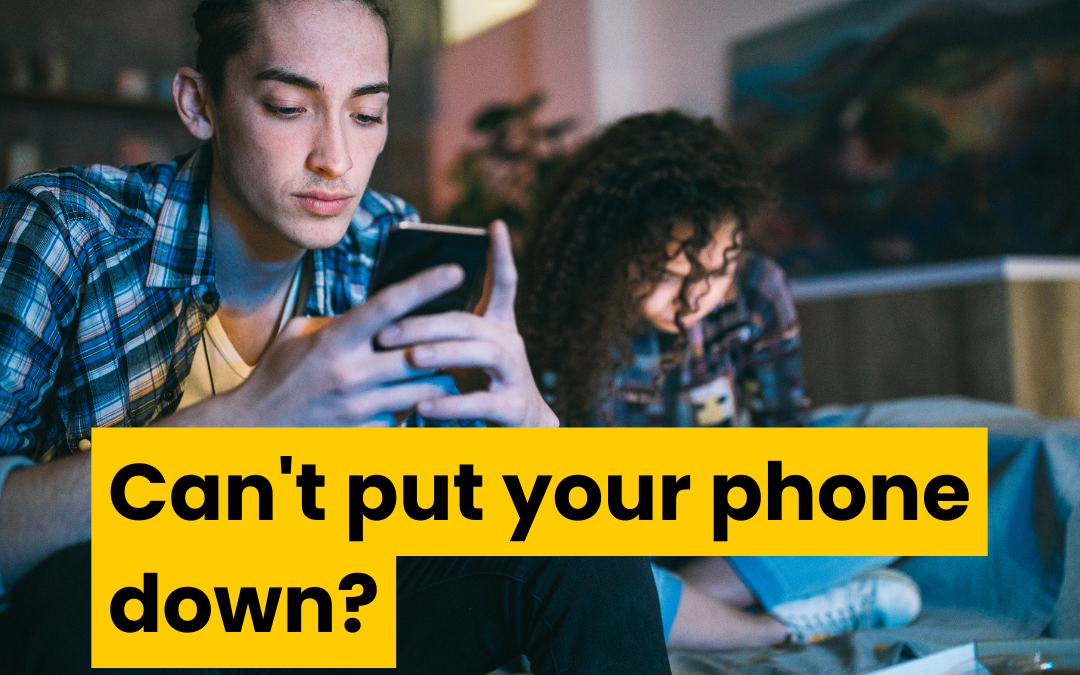Social media can be a great way to stay in touch with friends and family or reconnect with people we have lost touch with. However, there are many disadvantages to social media, including its potential impact on your mental wellbeing and your ability to focus on your studies.
The downsides of high internet and social media use
A study by Reed and colleagues found that higher internet use corresponded with higher feelings of anxiety and negative mood in a group of problematic internet users. The same study found physiological signs including increased heart rate and blood pressure when individuals were in withdrawal from the internet – even after just a 15-minute session.
Social media use often leads people to compare themselves to others, however they are rarely comparing themselves with an accurate portrayal of the other person, as you typically only see others “highlight reel”. There have been numerous studies investigating the link between comparison and self-esteem, with social media use being linked to more self-comparison, and in turn, lower self-esteem.
When using social media it may seem like you are being social, however it can actually cause you to feel more isolated. In their study, Primack and colleagues found that young adults who heavily use social media felt more socially isolated than their counterparts who spend less time checking their social media apps.
According to Common Sense Media – a family technology education non-profit group, teenagers are spending up to nine hours a day on social media. It is estimated that 210 million people around the world suffer from a social media/smart phone addiction.
A 2016 study proposed these criteria for smartphone addiction
- Failure to resist impulses to use
- Impact on mood
- Using for excessive periods/longer than intended
- Continued use despite a negative impact on mental/physical wellbeing
- Impacting functioning in daily life (relationships/job/school/driving)
Curbing your social media use
If you feel your smartphone/social media use is having a negative impact on your daily life, or if you feel like you meet any of the above criteria, you could try a “digital detox”.
Research has found that even a five-day Facebook detox could help, as demonstrated in one study where people who completed the detox displayed a decrease in the stress hormone cortisol
Establish how much time you’re spending on your phone
Smartphone apps like Moment – https://inthemoment.io/ can allow you to see how much screen time you’re having, which apps you use the most, and how many times you open your phone. Apple itself has its own Screen Time function allowing you to monitor mobile use.
Give yourself a daily social media allowance
Dr Richard Graham, a Technology Addiction Specialist at Nightingale Hospital advises “If you establish a maximum daily time allowance for your devices then you will be more likely to stick to your detox.” Again, for Apple users the Screen Time function allows you to schedule downtime away from your phone and to set App limits.
Encourage your family/colleagues to “phone stack”
“Phone stacking” is placing your mobile devices in a pile in the middle of the table, and the first one to reach for their device has to complete a forfeit, such as doing the washing up, or making a cup of tea for everyone.
Leave your phone outside the bedroom
“Try storing devices in a different room to your bedroom overnight,” suggests Dr Graham. “This will stop yourself using them straight before sleep, and first thing in the morning – which is important as sleep issues can sometimes coexist with technology addiction.”
Find a friend to detox with
Encourage a friend to “detox” with you – this will hold both of you to account, and you can discuss your progress with them. You can also spend face-to-face time with them, keeping your phones in your pockets!

